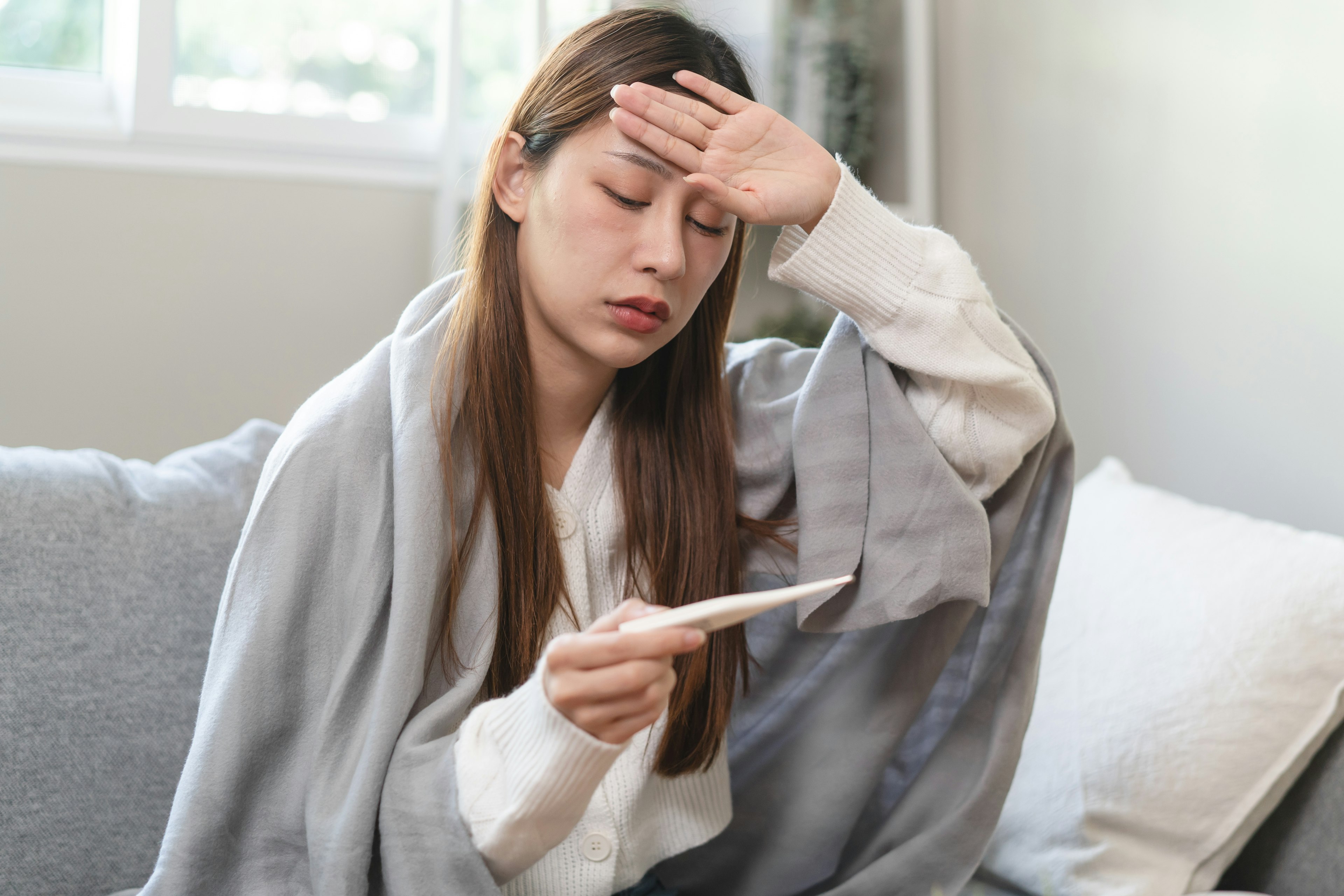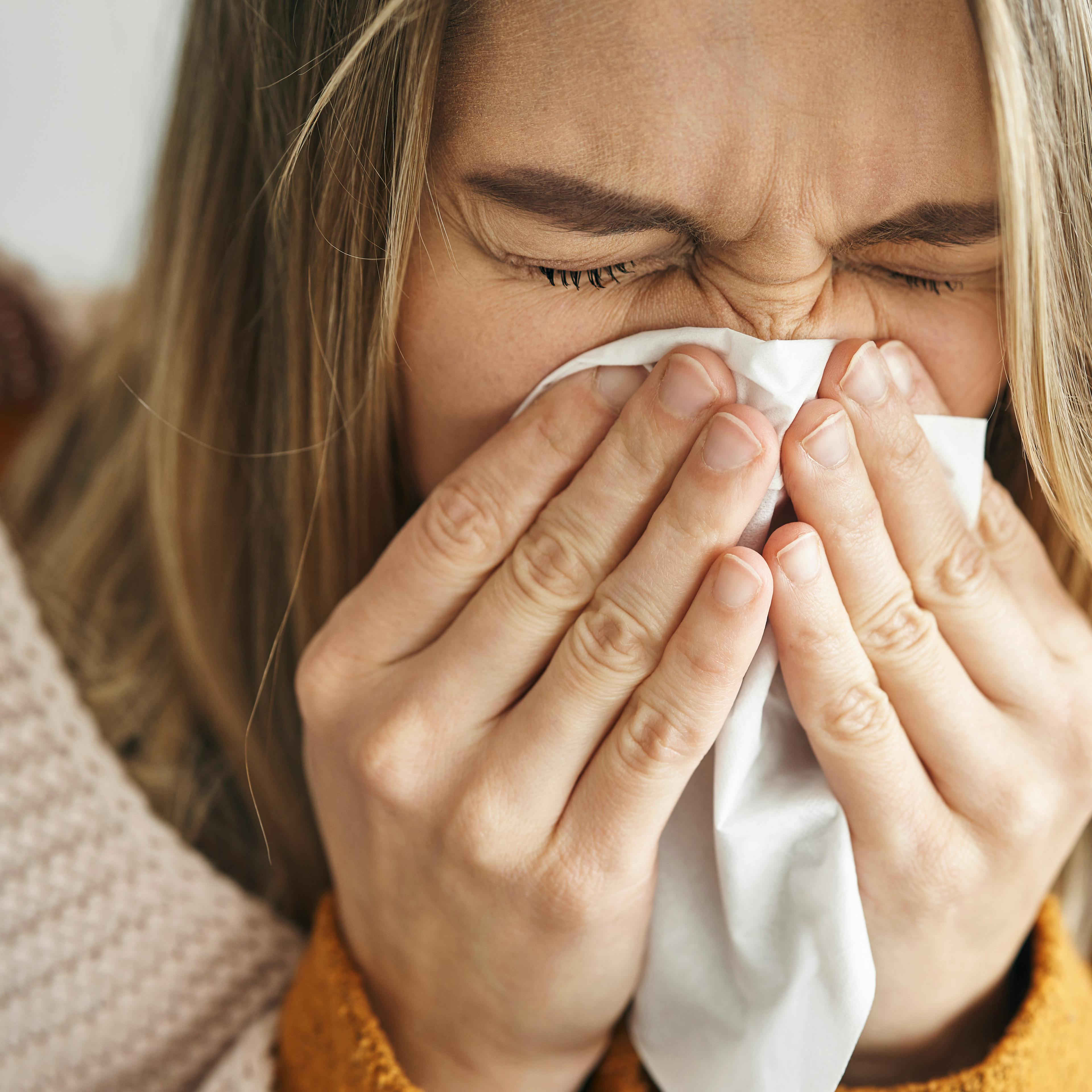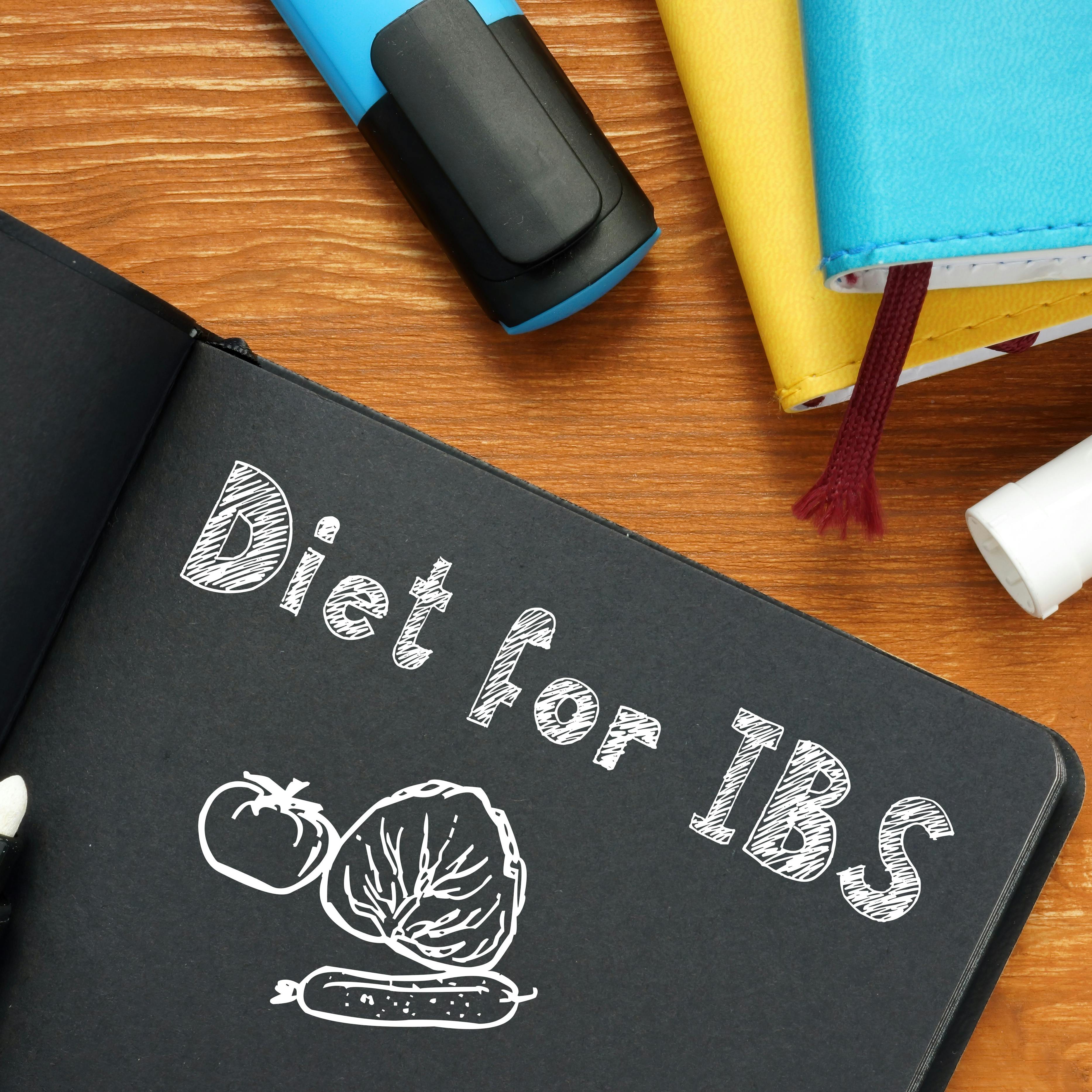How Long Does the Flu Last?
For most people, recovery takes 7–10 days, but symptoms often come in stages. This guide explains the flu recovery timeline day by day, what to expect, and how to recover faster—plus when it’s time to see a doctor.
What is the Flu?
Influenza, commonly known as the flu, is a contagious respiratory infection caused by the influenza virus. It spreads through respiratory droplets when an infected person coughs, sneezes, or talks.
Symptoms can range from mild to severe, often including fever, body aches, fatigue, sore throat, and a persistent cough. While most people recover within a week or two, some cases lead to complications requiring medical attention.
Flu Symptoms: What to Expect Each Day
When you are aware of the flu recovery timeline, it can help you to fully understand what to expect and when it might be necessary to seek medical care.
Day 1-2: Flu Symptoms Start Suddenly
Flu symptoms appear quickly, often within a few hours. You may experience:
- High fever and chills
- Severe body aches and muscle pain
- Fatigue and weakness
- Headache and sore throat
- Dry cough and congestion
At this stage, it's crucial to rest, hydrate, and manage fever with over-the-counter medications if needed. Antiviral medication may help if started within the first 48 hours. If symptoms worsen rapidly or include difficulty breathing, seek immediate medical care.
Day 3-4: The Flu Is at Its Worst
Symptoms tend to be at their worst during this period. Fever may continue, and extreme fatigue may make even the most basic of tasks feel exhausting. Additional flu symptoms may include:
- Ongoing cough and nasal congestion
- Increased dehydration risk due to fever and sweating
- Loss of appetite and nausea
During this stage, focus primarily on staying hydrated with water, herbal teas, and electrolyte-rich fluids. Additionally, continue to rest and monitor symptoms. If you experience chest pain, shortness of breath, or confusion, it’s time to see a doctor.
Day 5-6: Early Signs of Flu Recovery
By this point, fever may subside, and energy levels might begin to return. However, lingering symptoms such as the following may remain:
- Cough and nasal congestion
- Mild fatigue and weakness
- Sore throat irritation
Although improvement is noticeable, continue prioritizing rest and hydration. Pushing yourself too soon can prolong recovery.
Day 7-10: How Long the Flu Usually Lasts
For most individuals, flu symptoms start to fade by the end of the first week. However, some lingering effects may continue, such as:
- Occasional cough
- Mild fatigue
- Sinus pressure or headaches
These symptoms should gradually disappear, but if they last beyond two weeks or worsen, consult a healthcare provider.
Tips to Recover From the Flu Faster

While the flu takes time to resolve, certain steps can help speed up recovery:
- Start antiviral treatment early (within 48 hours) → can reduce flu recovery time by 1–2 days.
- Prioritize sleep → your body heals faster with rest.
- Stay hydrated → prevents complications like dehydration and sinus infections.
- Eat nourishing foods → soups, fruits, and veggies support immune recovery.
- Use a humidifier → eases congestion and cough.
When to See a Doctor for the Flu
Most people recover from the flu at home, but certain symptoms and risk factors mean you should seek medical care right away.
Call your doctor or seek urgent care if you experience:
- Difficulty breathing, chest pain, or shortness of breath
- Severe or persistent vomiting, dehydration, or dizziness
- High fever that won’t come down (above 103°F in adults, 102°F in children)
- Confusion, fainting, or sudden worsening after initial improvement
- Flu symptoms lasting longer than 10–14 days
High-risk groups should be especially cautious:
- Infants and young children
- Adults over age 65
- Pregnant women
- People with chronic conditions (asthma, diabetes, heart disease, COPD)
- Anyone with a weakened immune system (chemotherapy, transplant, HIV, etc.)
If you test positive for the flu within the first 24–48 hours of symptom onset, your provider may prescribe antiviral medication, which can shorten recovery time and reduce complications.
How to Prevent the Flu
Flu prevention starts with these good habits and proactive health measures:
Practice Good Hygiene
To minimize the risk of virus transmission, it's important to practice good hygiene. A few ways to kickstart healthy hygiene habits include:
- Wash hands frequently with soap and water.
- Avoid touching your face, especially your eyes, nose, and mouth.
- Disinfect commonly touched surfaces like doorknobs and phones.
Adopt Healthy Habits
In addition to hygiene, adopting healthy habits can significantly boost your immune system. Here are a few to prioritize:
- Get enough sleep to support immune function.
- Eat a balanced diet rich in vitamins and antioxidants.
- Exercise regularly to maintain overall health.
Get Your Annual Flu Shot
An annual flu shot is a reliable way to lower the risk of illness and complications. For optimal results, it’s advised to get vaccinated before the flu season reaches its peak, typically between October and February. The vaccine helps protect against common flu strains and lowers the chances of severe symptoms. It’s recommended to get vaccinated before flu season peaks for maximum protection.
Flu Treatment and Flu Shots at CLS Health
If you’re dealing with flu symptoms or want to protect yourself with the flu shot, CLS Health’s primary care team in Houston is here to help. We provide same-day flu testing, treatment, and vaccinations to keep you and your family healthy.
Schedule your flu care visit today at one of our CLS Health clinics in the Houston area.





